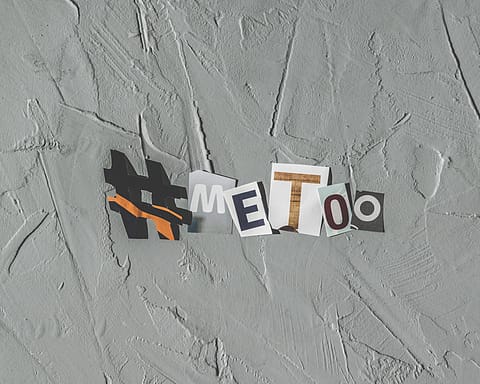#MeToo Era: Time of reckoning
As the #MeToo movement rages in India, organisations have no choice but to tighten their anti-harassment policies.

‘Zero Tolerance’ is a term often used to describe a company’s policy on sexual harassment at the workplace. However, despite assurances of employers, most victims choose to stay silent for fear of repercussions such as being denied a well-deserved promotion, being sidelined at work, or just plain ridicule.
Not anymore. The #MeToo movement in India has put the spotlight on the issue since actor Tanushree Dutta’s sexual misconduct allegations against Nana Patekar galvanised several women who took to social media to share their experiences, and name and shame alleged perpetrators. Organisations that might have brushed such issues under the carpet are now left with no choice but to tighten their policies. Some companies have taken cognisance of allegations levelled against their staff and have sought an explanation or asked them to go on indefinite leave. Top executives say that how a company responds to complaints against its high profile employees is a litmus test of its ‘zero tolerance’ policy on harassment. “If leaders practise a zero tolerance policy on any form of discrimination, harassment intimidation, exploitation or bias, then it sends out a clear message to all employees and encourages them to follow the same rules,” says Sumit Mitra, head, group HR and corporate services, Godrej Industries Ltd and Associate Companies.
Companies are making every effort to ensure a safe working environment for their women employees. “Investors don’t invest in companies that have come under the scanner for sexual misconduct until the matter is discussed and acted upon by the board,” says IT industry veteran T.V. Mohandas Pai, who is also an angel investor.
Corporates are supposed to deal with complaints of harassment according to the provisions of the Sexual Harassment of Women at Workplace (Prevention, Prohibition and Redressal) Act, or POSH Act, 2013. The Act mandates that employers form an internal complaints committee (ICC) presided over by a senior woman employee to consider such issues. But according to a survey by the Indian National Bar Association in 2017, 69% of the 6,047 respondents did not file a complaint with the ICC due to fear of retaliation and subsequent repercussions. “I could perceive that some of these cases were swept under the carpet in some companies... zero tolerance should be absolutely zero,” says a senior executive on condition of anonymity.
But the #MeToo movement is changing that. Of the more than 130 people named in an online document that lists #MeToo cases in India, some are men who hold or have held senior positions in various organisations, or are celebrities. Many victims in these cases chose to be silent all these years because of the celebrity status of the men. A prominent name on the list is M.J. Akbar, former editor and former Union minister of state for external affairs. Akbar, who quit office in view of the allegations, has filed a case of criminal defamation against journalist Priya Ramani, who was the first to call him out.
However, Pai, former head of human resources and chief financial officer at Infosys, thinks that public shaming is not the way to deal with sexual harassment at the workplace. “But the fact that we did not see companies question these social media allegations shows that there was no process in place to report such cases when these offences had taken place,” he says.
“Such old allegations will be contested in the courts of law,” Pai points out.
Recommended Stories
There are legal hurdles as well. Social media narratives cannot be deemed formal complaints. Many of the #MeTooIndia cases involve people who used to work with the victims at some point in their careers. The ICC can act only on complaints involving respondents and complainants, who are current employees, provided the reported incident took place at the workplace or while on an official duty off-site, and was registered within three months from the date of the incident (or the last incident in the case of serial offences).
Also, an employee cannot be fired over an allegation of an offence committed in the past, according to Supreme Court lawyer Ashish Dixit, who is representing environmentalist R.K. Pachauri. The former TERI chief was accused of sexual harassment in 2015. “It stands in violation of the alleged employee’s right to occupation and principle of natural justice,” Dixit says.
There is also the danger of an organisation being blind to orchestrated complaints in its zeal to ensure a safe and fair environment for women, which must be strongly dealt with, says Harsh Goenka, chairman, RPG Enterprises.
But after #MeToo, India Inc. cannot ignore such complaints, because for victims, silence is no longer an option.
(INR CR)
(This story was originally published in the November 2018 issue of the magazine)